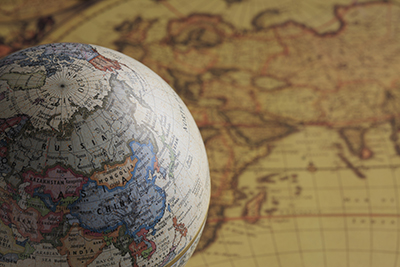Founder
It is founded on the first day of April, 2016, just a couple of months ago. The founder is Fumio Koma who is admitted to the Bar in Japan and in the state of New York (USA). He is a member of and registered with The Daiichi Tokyo Bar Association of Japan and Federation of Bar Association of Japan and The New York Bar. Fumio Koma left Baker & McKenzie (Tokyo) Law Office (prior name:“Tokyo Aoyama Aoki Koma Baker & McKenzie Law Office”, hereinafter referred to as the “B&M”) as of the end of March and established this new firm on the following day.
B&M belongs to and is a part of one of the world’s largest network of practitioners of law in the world and Fumio Koma had been an international partner (Principal) of the firm and served as a member of the managing committee of B&M (Tokyo) and other various positions in the firm and the network. Fumio Koma during his career with the firm, has engaged in a wide and variety of areas of law such as financial transactions, IT transactions, hotel and other entertainment transactions, franchise transactions, broadcasting rights transactions, real estate transactions, M&As and been involved in various antitrust and competition cases in Japan and in other jurisdictions (cartel, merger control, vertical and compliance). Also, Fumio Koma has been engaged in various dispute resolution cases (civil, criminal and /or administrative) including those related to antitrust law, product liability cases, financial transaction and regulation cases, fraud cases, corporate cases such as shareholders derivative suits and D&O liability cases, copyright and trademark infringement cases, performance right cases and other commercial dispute cases and has won Japanese Supreme Court case and assisted winning US Supreme Court cases.
At the proposal and initiative of Fumio Koma, B&M has established the Antitrust and Competition Practice Group in 2008 and, for almost 8 years since then, Fumio Koma has led the Practice Group.
Since then, the Group handled various antitrust and competition cases in Japan as well as the US, the EU, China, and other countries in the world including but not limited to cartel cases, vertical restraint cases, merger control cases and compliance cases in the administrative, criminal and civil proceedings. With the efforts of the Practice Group, the Group has been named as the First Tier in the International Antitrust and Competition groups in Japan for the first time in the 2016 version of Legal 500 (issued in December last year) and Fumio Koma was named at the same time one of the four individual practitioners in the field ( He has been named as such consecutively for a few years by Legal 500). Also, he has been named by the most recent rankings of Chambers & Partners as one of the top 11 practicing lawyers (they are called the First Band Lawyers) in the field of antitrust & competition law in Japan.
Fumio Koma, as a young and new lawyer joined the firm “Nishimura, Komatsu & Tomotsune Law Office” one of the top tier international firms in Japan in 1977 and started his career. Since then as a result of the firm’s split-ups and mergers, he continued his career at the “Komatsu & Tomotsune”, “Komatsu & Koma” ,”Asahi & Koma” and on April 1, 2007 transferred to B&M (or then more known in Japan as the “Tokyo Aoyama, Aoki & Koma”. Before the transfer to B&M, the changes to the firms he belonged were basically made for the purpose of building up a Japanese law firm equivalent in terms of quantity and quality of lawyers to the top tier law firms in the USA.
Fumio Koma believes that the depth and width of the domestic and international cases handled during his practice with the Japanese international law firms and the depth and width of international cases handled during his practice with B&M and the depth and width of experiences obtained through participation in the management of both the Japanese international firms and B&M are his greatest assets , which enabled him to be able to handle both landmark transactions in Japan as well as landmark international ones not easily accessible for most lawyers.
Fumio Koma believes that the tsunami of social changes to our human society that may well be bigger than the ones we had in the past 40 years will sweep and swallow our human society in the coming twenty years. The legal profession as well as the legal practices are not immune to or from the influence that the Tsunami brings. It is Fumio Koma’s personal hope that he could spend the time remaining with him on the pursuit for and discovery of new developments and directions of the future legal practices through handling actual cases he would handle together with the younger lawyers in this firm or outside this firm and together with the lawyers and businessmen within the clients’ teams, who will be the main actors and actresses in the future.
The following are some of the types of legal work Fumio Koma has deeply and personally been involved in the past. We are sure that by looking at the list of the types of cases below, readers would find the mentors, colleagues and younger people who in the past formed a team with Fumio Koma were mostly the people who challenged the new areas and newly developed practices throughout the times.
*Shareholders derivative suits in US and Japan (defended)
Antidumping Proceedings in US and in Japan
Examined Witnesses from 12 companies for Australian Case under International Legal Assistance Law
Dispute Over Joint Accounts Held At Foreign Branch of a Japanese Bank
Establishing the Largest Network of Advertising and Public Relations
Various Sport Events Including Olympics Broadcasting Rights Transactions
The merger of international TV platforms in Japan
Acquisition of Foreign Listed Securities Company
Acquisition of and Selling of Domestic and International Hotel Chains and Other Hotel Related Transactions
Criminal and Administrative Charges Under Banking and Securities Exchange Acts against Japanese companies
International Cartel, Merger Control, Violation of Vertical Restraints and Compliance Cases under the Antitrust and Competition Laws in Japan, US, EU and other countries in the World
Various Litigations related to companies.
Copyrights Infringement Litigations
Dispute related to default and Sovereign Debts and syndications
Disputes on One of the Largest Oil Projects
US Environment Law related Administrative and Criminal
Various M&A transactions including the nationalization of a failed bank and the sale of the bank to foreign fund
International Fraud Case in which criminal, civil and administrative proceedings to recover is sought
From now the firm would like to endeavor on building up the practices and the team of lawyers however small the size may be, predicated on the ideals set forth above, to collect lawyers who share the ideal and who pursue the highest quality practice for the best results for the clients and who are capable of showing their independent judgements and cooperative spirits towards its colleagues whenever necessary to achieve our goals and who are not afraid of challenging the future..
Founding Partner

( late ) Fumio Koma
From now the firm would like to endeavor on building up the practices and the team of lawyers however small the size may be, predicated on the ideals set forth above, to collect lawyers who share the ideal and who pursue the highest quality practice for the best results for the clients and who are capable of showing their independent judgements and cooperative spirits towards its colleagues whenever necessary to achieve our goals and who are not afraid of challenging the future..
Publications, presentations and articles
- Co-author, "Amendment to Antimonopoly Act Related to M&A Practice," MARR, 2009
- Author and Editor, Cartel & Leniency Practice, Shoji Homu, 2008
- Co-author, Cross-border M&A Practice, Chuo Keizai-sha, 2008
- Co-author , e-Business, Toyo Keizai Shinpo-sha, 2000
- Co-author, Practical Aspects of Japanese Reverse Mortgage, Toyo Keizai Shinpo-sha, 1998
- Derivative Lawsuit - Issues and Countermeasures, Toyo Keizai Shinpo-sha, 1998
- "Directors Liability," Euromoney, 1992
- Co-author, Tax System against Tax Haven, Dai-ichi Hoki, 1982
- Case Study, Tax System against Tax Haven, Zaikei Shoho-sha, 1979
Presentations
Speaker, “Remedies in Foreign Jurisdictions”, Japan Competition Law Forum (Tokyo) February, 2016
- Panelist, “Remedies” Brussels, 2015 Cartel Workshop (attended as a NGA), October 2015.
Moderator and speaker, "Enforcement In Other Countries (Japan, India, HK and China),'' Kuwer Law Conference for In -house Counsels Japan: Global Competition Law Forum, Tokyo, May 2015
- Speaker, "APPA (a vertical transaction)," Sidney The 17th Annual meeting on ICN (attended as a NGA), April 2015
- Moderator and speaker, ''Sharing witness interviews and dealing with collateral disclosure concerns (mini plenary session),'' 2014 ICN Taipei Cartel Workshop (attended as a NGA), October 2014
- Attendee, 8th Seoul International Competition Forum, September 2014
- Attendee (NGA), Warsaw The 15th Annual Meeting of ICN, April 2012
- “Competition Law in-EU and Germany-Basics and New Developments” Speaker
At the Seminar Sponsored by Japan Commercial Association inDusserdolf-December, 2014
- “Alliance Strategies in Hotel Business” Panelist in Panel Discussion At
Hotel Executive Forum 2013 Sponsored by Deloitte July, 2013
- “On the Practice of Antitrust Law” (2012)
Ritsusmeikan University School of Law(Tokyo Seminar Guest Lecturer)
Professional affiliations and other affiliations
- Dai-ichi Tokyo Bar Association – Member((since 1977)
New York Bar (since 1984)
Representative Director of NPO DO55 (a non –government organization for assisting the recovery of Tohoku district) (since 2012)
- Japan Competition Law Forum - Board Member (since 2015)
Shougiin Member of Waseda University (2016)
Admission
New York~United States (1984)
Japan (1977)
Education
Law School of University of Washington (LL.M.)(1982)
Trainee at The Research & Training Institute of The Supreme Court of Japan (1975-1977)
Waseda University (B.A.in Economics)(1971)
May 27, 2017 date of passing
On the word "Glocal" (explanation by Fumio Koma)
The word “Glocal” was created by combining the words “global” and “local” together into a single word. It seems that the word is generally understood to connote the importance of “Thinking Globally and Acting Locally” in promoting the sale of even a globally branded product or service in the world. The word is said to be put together in order to create an English word matching the word “Dochaku” which originally and broadly meant localization or domestication in the Japanese language and used by Japanese economists in the 1980s. It is widely believed that Professor Roland Richardson (sociologist), a very famous English scholar, coined the word in 1997 for said purposes.
However, the usage of the word “glocal” should not be limited to the context of international sales promotion activities. That seems to be too narrow if you consider the fact that a wide range of people outside the world of international marketing are using the same word in their own expertise.
For instance, according to Professor Roland Paterson to whom we owe very much for proliferating the new word worldwide, defines the word to mean “the simultaneity-the co—presence of- both universalizing and particularizing tendencies”. This definition alone tells us that the word is not necessarily used only in the international marketing
In the case of the professor, it is clear that he is using the word to express the social phenomena created as a result of “globalization”.
One of the reasons we adopted the word in our firm’s name is that the word has a “salty scent of the 21st century seashore” Why the scent of 21st century? Because the words such as “global”, “local” and “glocal” are recently used to describe even the worldly matters or problems; yet they wittingly or unwittingly smother, to the extent possible, the smell of sovereign states. Unless any certain matter or problem is directly and purely “inter-nation”, people in the 21st century rarely describe it as being “international” but rather as “global”. (as is well known, the word “international” originally means the relation between two or more sovereign states.) Global means the entire earth, whereas local means something or some sphere smaller than the global. It could of course be a territory of a sovereign state but it can also be the EU or the city of New York or Tokyo or even a small village in the Himalayas. The words “global” and “local” suggests that the main players are not necessarily the sovereign states. Why is this happening? Why are people more inclined to describe the world problems using the word “global” and “local” ratherthan the words “international” or “domestic”?
We think there are five backgrounds for this preference in describing the problems or issues of the world by the word “global” than “international”.
Firstly, entering into the 21st century, it is true that there are increasingly more issues or problems of the world which are not capable of being solved by two nations or a couple of nations. (The examples of these are earth warming, aging society, the population burst on the one hand and population shrinking on the other, etc.)
Secondly, due to quick digitization of information and quick progress of internet system in tandem with the development and popularization and individualism of mobile devices in the 21st century, it is possible for people to exchange character information and image data, video and other digitized information directly from one’s mobile device in India in his or her living room sitting on his/her rocking chair to a lady living in Tokyo (Japan) who just happened to be in Kyoto (Japan) for business. The great thing about this is you need no media device such as LP or Donuts, tapes,or other analog recording device or CD, DVD, USB or other digital recording device to be exported from India and to be imported to Japan by way of air, sea or otherwise for the purpose of sending the information from India to Japan. Since such media devices are all physical in existence, governments are able to get hold of such media device and they most of the time does go through the customs (or subject to censorship) of both exporting and importing countries operated by the sovereign states as was in the near past. Even the whatever commodities you can think of today, which are exported from China to various countries in the world, may in the near future be sent from India to Japan with information emitted by the devices just described, along with the usage of a 3D printer located in the hotel in Kyoto to receive the information needed from the device located in China. Soon, some of the commodities would no longer be necessary to pass the traditional customs at the air or sea ports, at least in a physical sense. Did the image of sovereign states change after mobile device appeared and would the image of sovereign states changesubstantiallyif 3D device in the near future starts to replace the traditional trade in the minds of ordinary people in the world? We do think so.
 Thirdly, beginning in the 1990s and fully developed in the 21st century, due to the fall of The East (the area dominated or controlled by the Soviet Union), the entire world saw divided local markets merge into a formation of one large global market.
Thirdly, beginning in the 1990s and fully developed in the 21st century, due to the fall of The East (the area dominated or controlled by the Soviet Union), the entire world saw divided local markets merge into a formation of one large global market.Fourthly, immediately before the turn of the century, some of the member countries of the EU entered into a monetary union, a giant step towards the unification of Europe. Albeit the troubles created in the EU, it was a giant experiment that influenced the entire world. The ASEAN countries also took a giant step towards the direction of the EU by forming AEC towards the end of last year, although a monetary union is yet to come. Further, I do not know of any areas in the world which has no plan for establishing a union of states for monetary, single market of free trade zones beyond the borders of sovereign states.
Fifthly, although I will not get into the details, the economists who are called the neo-classic school has gained substantial influence over the governments of the West and the influence further expanded into the East and the third world after the fall of the Soviet Union. The theorists of the school propagated in a simple one phrase “the night watch” state in which the state role is to preserve the safety and security of the state and the people and no other. This led the school to take the policies of reducing the taxes and reducing the government regulations that bounds the activities of companies and people.
Did these changes which we think can be described as “glocal” change the minds of the people in the world? We do think so. However, we described the above shared feeling of oneness of the world to be only a “scent of 21st century seashore,” since we think , despite the images transcended by some of the globalists, we face the laws of the sovereign states and the treaties signed by such sovereign states in the actual world of legal practices and they still remain as the dominant elements that the practitioners of law cannot ignore. While the image of oneness is important for those who live in this century, one should not forget the reality and tendency of the world of human beings: that the human being is an animal that cannot live without predicting the future and where prediction cannot be made more accurate by scientific means, people try to change the world physically to make predictions more accurate by building fences, walls, ditches, canals and other things to make physical circumstances change. Where scientific or other useful knowledge or the physical means are not readily available to make the future prediction more accurate, to the extent the prediction of how a person or persons as a group acts in the future are concerned, people try to make it more predictable by setting rules and punishments for the violators in the civil, criminal or administrative proceedings to make the acts of other people in the future more predictable. There remain the essence of one of the most important function of the law so long as the people remain an animal having independent souls with freedom.
One more thing interesting about the word “glocal” is that the 21st century might be the first century in which the “local” surpasses the boundary of earth ( i.e., “global”). Until now, “local” was smaller than the earth and was always thought to be inside the globe (earth). It is expected that by the end of this century, most people would recognize and feel the “locality” outside the globe for the first time in the history of human kind. If that happens, the “globalization” may mean the transplanting of civilization or the culture formed on the Earth to the bases outside the globe and the word “glocal” may well mean the transplanting of cultures nurtured in the bases outside the Earth to the Earth. Such change in the meaning of the word to be predictable within this century makes the word “glocal” even more attractive for us living in this century.
Lastly, perhaps the most important reason we picked the word “glocal” is that we wanted a new epigram to remind our lawyers the necessity of rethinking and reviewing from various angles to the last minute before any steps are taken. The concept is not new but we wished to express this in a 21st century fashion. That was the word “glocal”. At the last minute, revisit and look at the global, as well as the local, view of each case in order to avoid falling into the trap or mishap of losing the sight of each tree for the forest and/or the trap and mishap of losing the sight of entire forest for a tree in the forest.
In this sense, our lawyers include the word the “glocal” not only to “Think globally and act locally but to “Think locally and act globally.” Needless to say, the word also includes to “Think globally and act globally” and to “Think locally and act locally”, a norm for any people. In the same token, when we say “act” we include the choice of not acting but when we say “think” we rarely include the choice of not thinking.



